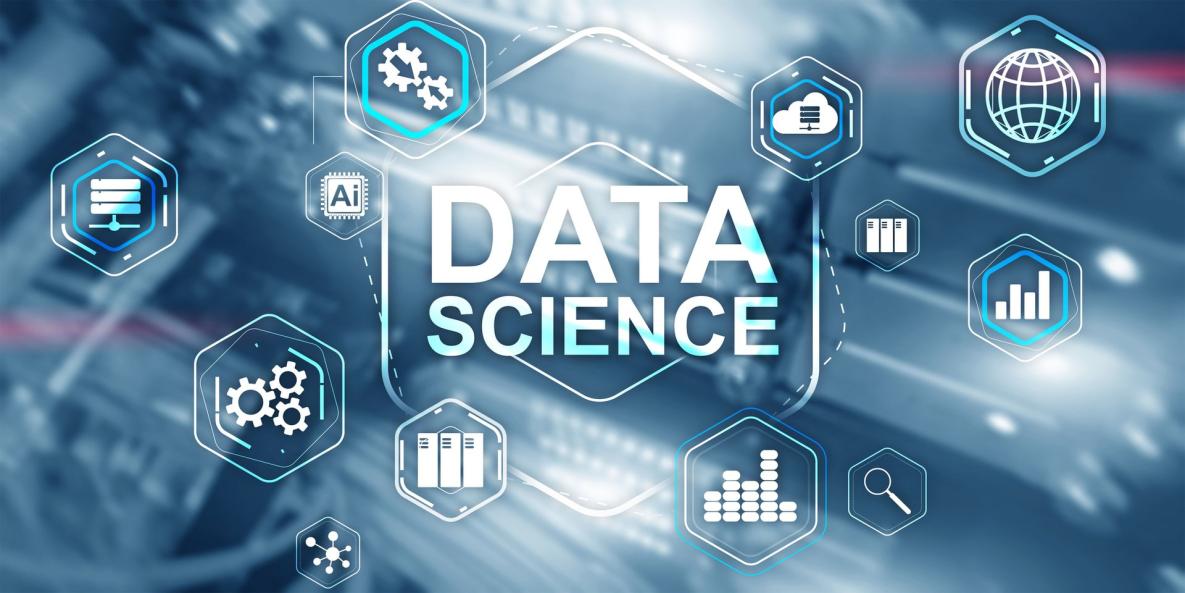How is AI Data Science Enhancing the UAE's Smart City Initiatives?
The United Arab Emirates (UAE) has emerged as a global leader in smart city development, leveraging the transformative power of artificial intelligence (AI) and data science to create more efficient, sustainable, and citizen-centric urban environments. This article explores the groundbreaking applications of AI data science in the UAE's smart city initiatives, highlighting the benefits, challenges, and future directions of this rapidly evolving field.

AI Data Science Applications In Smart City Initiatives
Traffic Management
AI plays a pivotal role in optimizing traffic flow and reducing congestion in UAE cities. Advanced algorithms analyze real-time traffic data from sensors, cameras, and mobile devices to identify patterns, predict traffic conditions, and suggest alternative routes to drivers. This data-driven approach significantly improves traffic management, reducing travel times, fuel consumption, and emissions.
Energy Efficiency
AI empowers cities to optimize energy consumption and distribution. By analyzing historical and real-time energy usage data, AI algorithms identify areas of inefficiency and suggest measures to reduce energy waste. Smart grids equipped with AI technology enable efficient energy distribution, minimizing losses and ensuring reliable power supply. Additionally, AI-powered smart buildings adjust heating, cooling, and lighting systems based on occupancy and weather conditions, leading to significant energy savings.
Waste Management

AI plays a crucial role in enhancing waste management practices in UAE cities. AI algorithms analyze waste collection data to optimize collection routes, reducing fuel consumption and emissions. Advanced waste segregation systems powered by AI identify and separate recyclable materials, promoting sustainability and reducing the amount of waste sent to landfills. AI-enabled smart bins monitor fill levels and communicate with waste collection vehicles, ensuring efficient waste collection and preventing overflowing bins.
Public Safety
AI contributes to enhancing public safety in UAE cities. AI-powered surveillance systems analyze camera footage in real-time, detecting suspicious activities and alerting authorities. Facial recognition technology aids in identifying wanted individuals and preventing crime. Predictive policing algorithms analyze crime patterns and identify areas at high risk of criminal activity, enabling law enforcement agencies to allocate resources more effectively.
Benefits Of AI Data Science In Smart City Development
Improved Efficiency

AI data science streamlines city operations, leading to increased efficiency and cost savings. By analyzing vast amounts of data, AI algorithms identify areas for improvement, optimize resource allocation, and automate repetitive tasks. This results in faster response times to citizen requests, improved decision-making, and enhanced overall city management.
Enhanced Sustainability
AI data science contributes to creating more sustainable cities. By optimizing energy consumption, reducing waste generation, and promoting environmentally friendly practices, AI helps cities achieve their sustainability goals. AI-powered smart grids balance energy supply and demand, reducing reliance on fossil fuels and promoting renewable energy sources. Smart buildings equipped with AI systems minimize energy usage and water consumption, leading to a greener urban environment.
Increased Citizen Engagement
AI data science enables citizens to interact with city services and provide feedback more effectively. AI-powered chatbots and virtual assistants offer 24/7 support, answering citizen queries and resolving issues promptly. Citizen surveys and public consultations powered by AI gather valuable insights, ensuring that city planning and decision-making align with citizen needs and preferences.
Case Studies Of AI Data Science In UAE Smart Cities
Dubai
Dubai, a global hub of innovation, has embraced AI data science to transform urban life. The Dubai Smart City Platform integrates data from various city departments, enabling real-time monitoring and analysis of traffic, energy consumption, waste management, and public safety. AI-powered traffic management systems optimize traffic flow, reducing congestion and travel times. Smart streetlights adjust lighting levels based on traffic and pedestrian activity, saving energy and enhancing safety. Dubai's AI-driven waste management system optimizes collection routes and promotes recycling, reducing the city's environmental footprint.
Abu Dhabi
Abu Dhabi, the capital of the UAE, is also at the forefront of AI-driven smart city development. The Abu Dhabi Smart City 2030 vision aims to create a sustainable, inclusive, and technologically advanced city. AI plays a crucial role in achieving this vision. AI-powered surveillance systems enhance public safety, while AI-enabled traffic management systems optimize traffic flow and reduce congestion. Abu Dhabi's smart grid utilizes AI to balance energy supply and demand, integrating renewable energy sources and reducing carbon emissions. The city's AI-powered waste management system promotes recycling and minimizes waste generation.
Challenges And Future Directions
Data Privacy and Security
The use of AI data science in smart cities raises concerns about data privacy and security. Safeguarding citizen data from unauthorized access, misuse, or breaches is paramount. The UAE has implemented stringent data protection regulations and security measures to ensure the responsible and ethical use of AI data science.
Ethical Considerations
The ethical implications of AI in smart cities require careful consideration. Ensuring transparency, accountability, and fairness in AI algorithms is essential to prevent bias and discrimination. The UAE is committed to developing ethical guidelines and regulations for AI use, ensuring that AI systems align with societal values and human rights.
Future Trends
AI data science in smart cities is rapidly evolving, with emerging trends shaping the future of urban development. Edge computing and 5G networks will enable real-time data processing and decision-making at the city level. AI-powered autonomous vehicles and smart transportation systems will revolutionize urban mobility. AI-enabled predictive maintenance will optimize city infrastructure and prevent disruptions. These advancements hold immense potential for creating more efficient, sustainable, and livable cities.
AI data science is a transformative force driving smart city development in the UAE. By analyzing vast amounts of data, AI algorithms optimize traffic flow, improve energy efficiency, enhance waste management, and contribute to public safety. AI-powered smart cities are more efficient, sustainable, and citizen-centric, offering a higher quality of life for residents. The UAE's commitment to AI data science and smart city initiatives positions it as a global leader in urban innovation, inspiring other cities worldwide to embrace the transformative power of AI.
YesNo

Leave a Reply